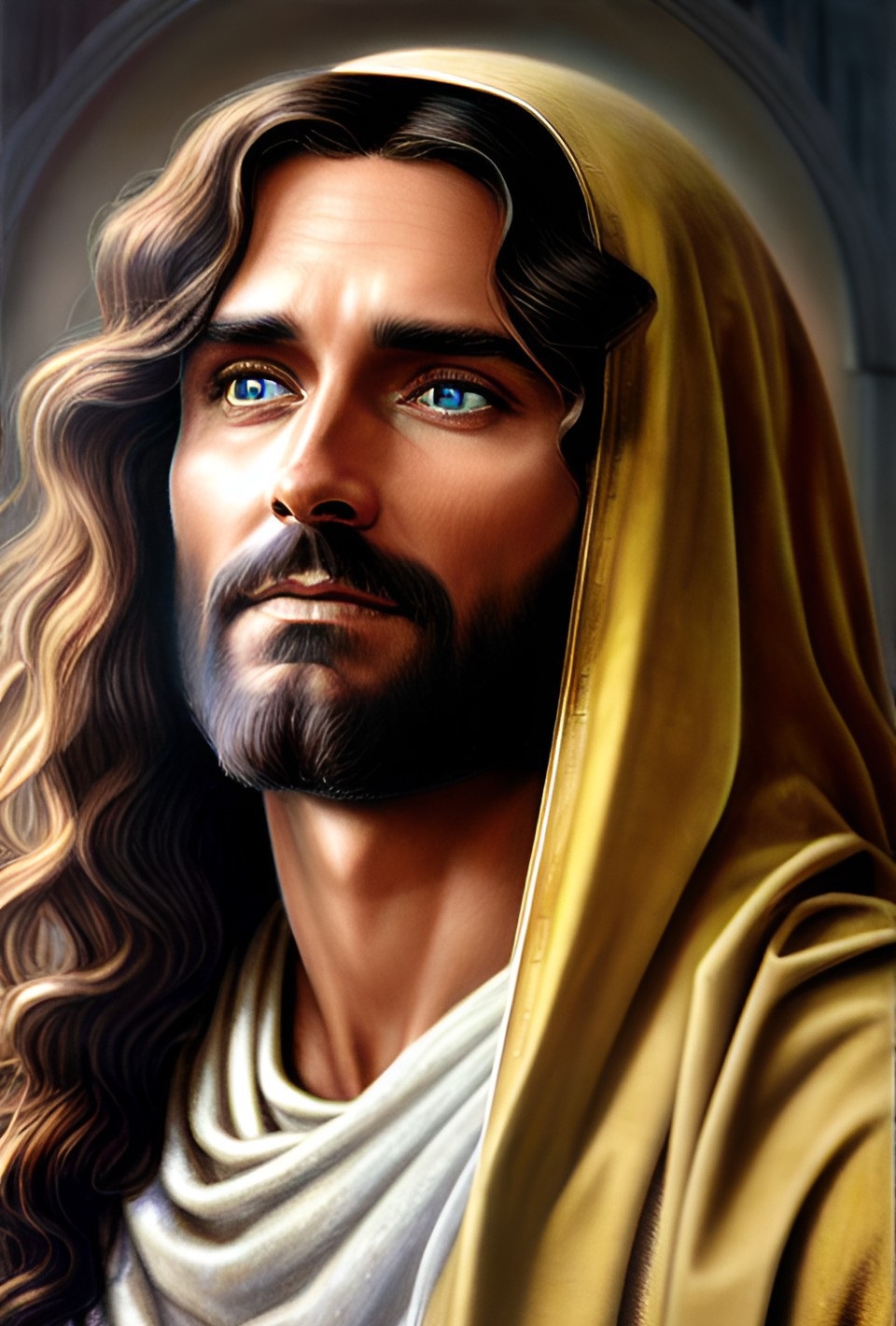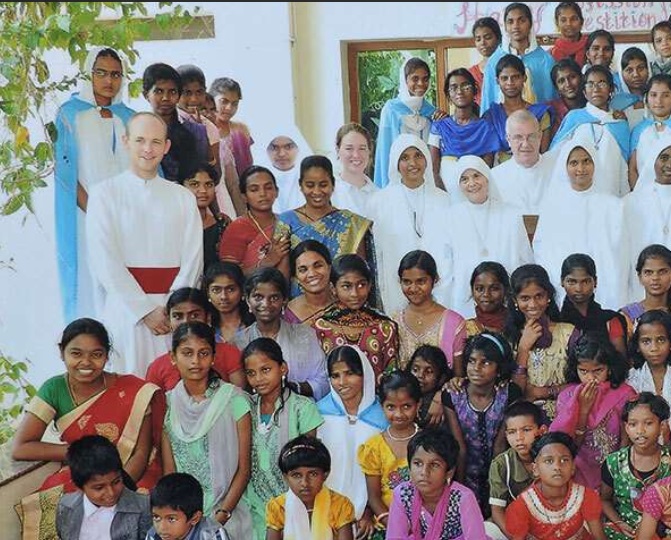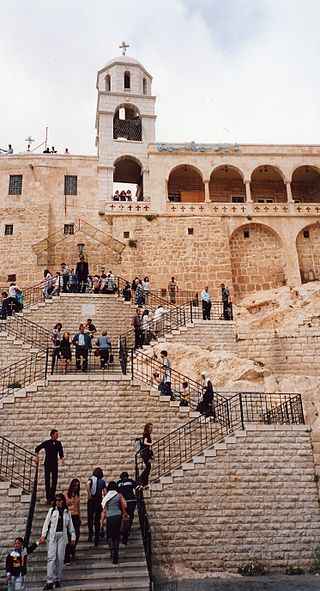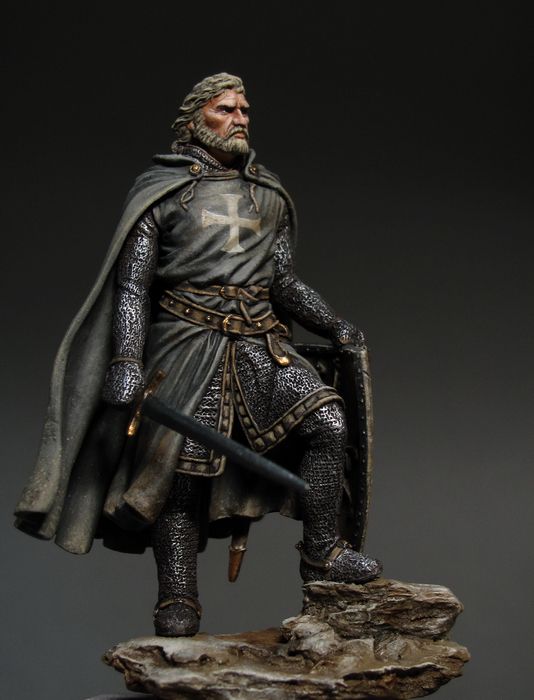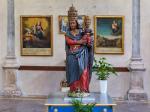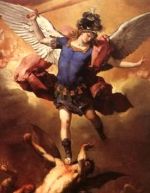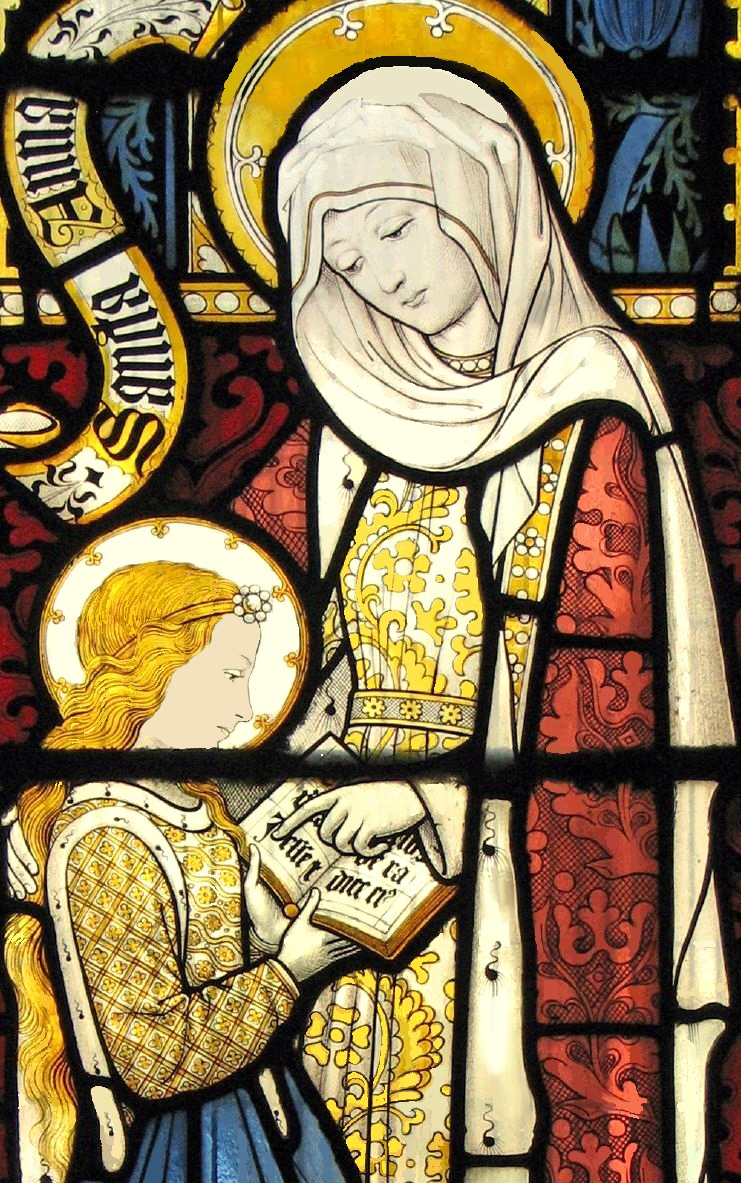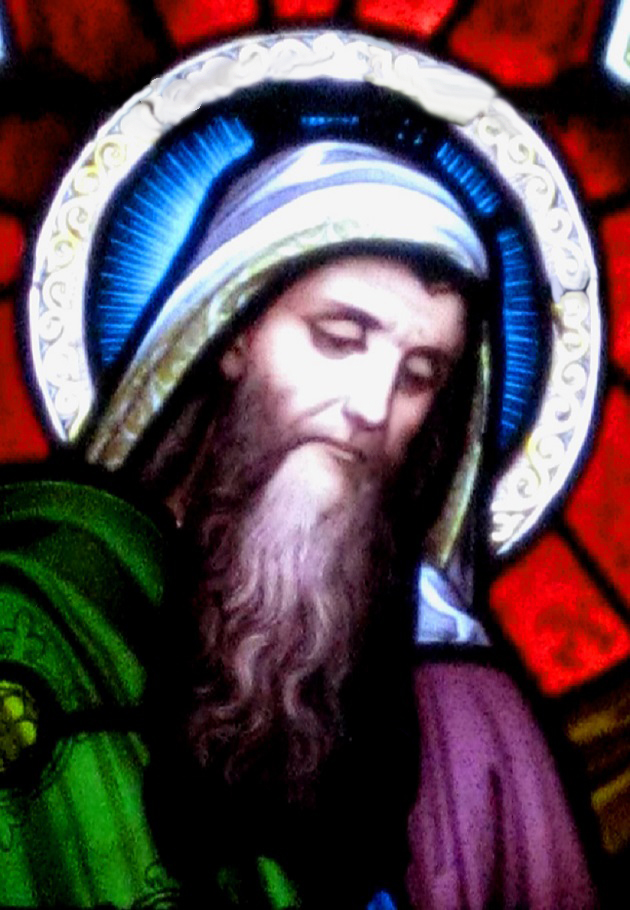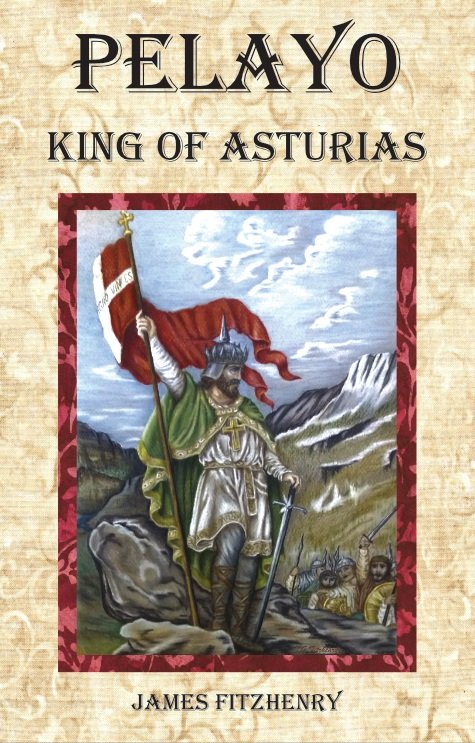Fabiola Movie - Industrious Family Films!
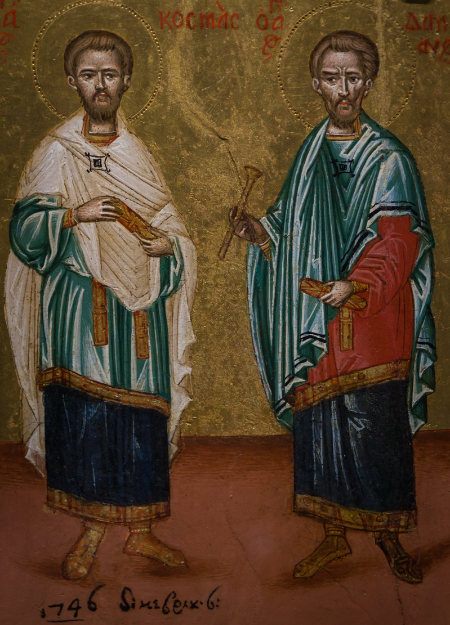
Marcus and Marcellianus
In a luxuriously decked-out apartment, a mother stands weeping over her twin sons. In startling contrast with their surroundings, the two brothers have marks of receiving great torture. Now they sit with their mother and father in the public register’s home while their friends do all they can to shake their faith in Christ. Looking back on the events that brought them to this point, they can easily trace their almost predictable fate.
The twin brothers Marcus and Marcellianus had been converted to the True Faith shortly after the great persecution of Diocletian broke out. After their arrest and torture, they were finally sentenced to death. It was then that their pagan parents and friends were able to get the executions postponed for thirty days in which time they hoped to dissuade Marcus and Marcellianus from the Faith. To further pressure them, they were removed from the prison and brought to the house of Nicostratus, the public register.
We can easily imagine them, gaunt from the torture they had already suffered, sitting in a room full of worldly comforts, with their mother and father begging and imploring them to give up a religion that, from a worldly viewpoint, had nothing to offer but suffering and maybe even death. The persuasions began to work. The two were at the point of sending word that they were ready to give up their Faith. They were able to suffer with patience all of the tortures hitherto inflicted on them. They would even have suffered their martyrdoms with joy. But being put in limbo with nothing to do but anticipate death surrounded by friends begging them to save themselves was the worst torture and one that almost broke them.
It was then that another famous character appeared on the scene. St. Sebastian had heard of the troubles of the two boys and came with all possible haste. Sebastian “took the floor” and implored the brothers to consider what they were about to do. They could finish their great act of love of God and be quickly rewarded for their sufferings or they could disgrace their Faith, apostatize, slowly and agonizingly recover from their wounds, and live on with the guilt of their sin. At the end of their lives, they would have to answer for this and be cast into eternal torture and misery. The choice should be an easy one.
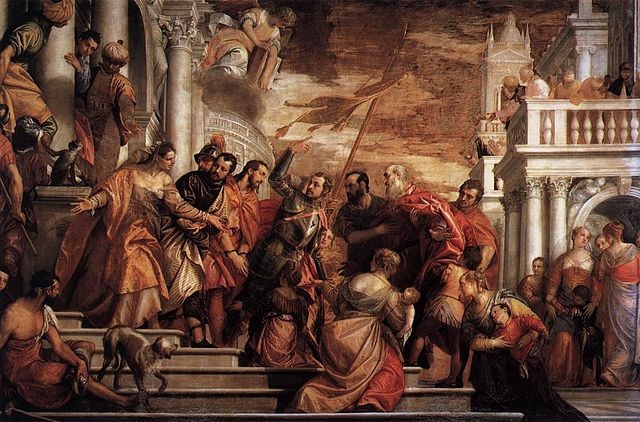
Marcus and Marcellianus’ mother and father were horrified. Did the Church that their sons embraced really demand such a sacrifice? In the face of the great and brave soldier represented by Sebastian, the two brothers hung their heads in shame to think of what they were about to do.
Also in the room was Nicostratus, the owner of the house. Out of curiosity to see how the tortured twin brothers were faring, his wife Zoe who was dumb also accompanied him. They were surprised to find that Sebastian’s words greatly strengthened Marcus and Marcellianus’ Faith. Not only that but their parents were also converted and ready to suffer for their newfound religion. When Nicostratus expressed his wonder, Sebastian bravely took the opportunity to evangelize and many others expressed their belief in Christianity. Nicostratus alone was unmoved. His wife Zoe knelt at Sebastian’s feet and seemed to implore him with her look and gesture to help her learn more about the Faith.
Seeing her belief, Sebastian charged her to share her love of the truth with her husband. Nicostratus told Sebastian that Zoe was dumb. Sebastian prayed to God that Zoe’s tongue be loosed. Then he told her to speak.
“I believe in the Lord Jesus Christ,” she said.
That settled the point—Nicostratus was also converted. He gave the Christians free rein to his entire house. The new converts were quickly instructed and baptized. Marcus and Marcellianus’ father recovered fully from his gout immediately after his baptism.
This fact drew the attention of the prefect of the city, Chromatius, who also suffered from gout. He sent for Sebastian and asked to be baptized to see if it would clear up his condition as well. Although it was not permitted that he be baptized on the experimental reason, Chromatius was again told to discard all of his idols and see if he was cured. Shortly after destroying the last of his idols (even one he thought about keeping for ornamental purposes) the last of his gout disappeared. He too was converted and resigned his office for a life of prayer and mortification. Sometime after the release of Marcus and Marcellianus, they were again betrayed. This time they stood like men and were sentenced again to death. Their feet were nailed to pillars and they were lanced with spears.
The characters of St. Sebastian, Chromatius, and Sts. Marcus and Marcellianus will appear in Industrious Family Films’ new film FABIOLA. Learn more and contribute to the pilot here: https://www.industriousfamily.com/fabiola.htm
St. Hilarion Of Gaza
Feast Day – October 21
What little we know of St. Hilarion of Gaza is largely indebted to the writings of St. Jerome who wished to share the honorable life and example of this little-known saint. Jerome tells us that Hilarion was the son of Palestinian pagans who were "given to the worship of idols, and (he) blossomed a rose among the thorns." His conversion may have come about because of a certain teacher in Alexandria who may have been a Christian. St. Jerome shares that Hilarion "believed in the Lord Jesus, and delighted neither in the madness of the circus, in the blood of the arena, nor in the luxury of the theatre.”
By the time Hilarion was fifteen years old, he visited the hermit St. Anthony. After a short time of living this lifestyle of mortification, Hilarion realized that he could not just jump into the "ease" (if you could call it that) of the life that Anthony had built but "must rather begin where Anthony had begun." Anthony was receiving the reward of victory while Hilarion had not yet begun the battle. So, he returned to the world for a brief time to sell all he owned and distribute his inheritance.
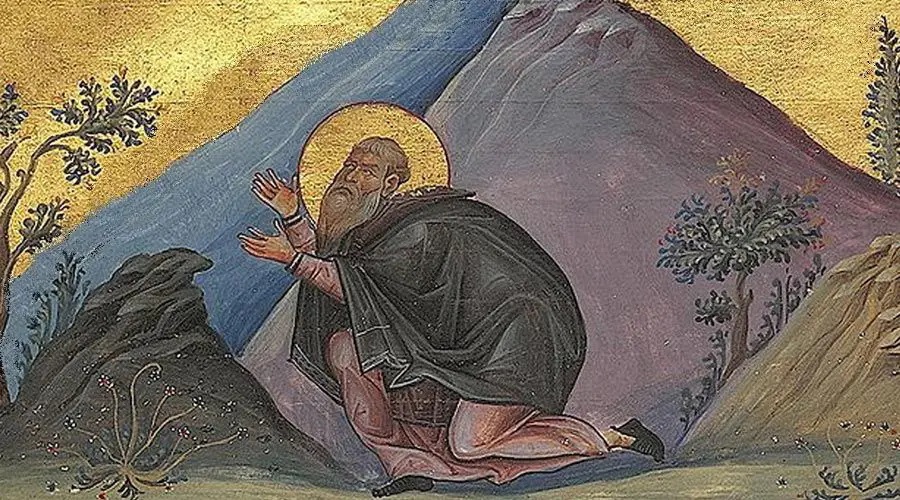
He then set out with a small group of men into the desert to continue his life as a hermit. St. Jerome writes that his desert cave was more of “a tomb rather than a dwelling”. His cell was only four feet wide and five feet tall so that he could never stand his full height. The growing number of people who begged him to heal and preach to them became a distraction to his prayer life. He seems to have been very amiable and was known for being merciful and full of pity for the wretches who called on him. Jerome relates that all wondered at his spirit and at his youth. Because of this, he never stayed in one place for long but moved frequently around the port of Gaza then finally migrated to a remote island off Cyprus.
His life was that of a nomad filled with prayer, rigorous fasting, and constant combat with the devil. Whenever St. Hilarion escaped the people, he could hardly sleep at night because of the noise of the numerous demons. "The devil was tormented that he had been conquered by a boy.” In Hilarion’s hours of solitude, the devil would tempt him with tables of extravagant feasts and sometimes by presenting him with ideas to tempt his flesh. After withstanding these trials, he would be plagued by attacks of despair - his cure for which was greater acts of mortification and fasting. St. Jerome tells us that so numerous were his temptations that to retell them all would take volumes.
Hilarion could never hide from the crowds. They always sought him out and did not give up until they found him. Multitudes would climb treacherous mountains, cross the heated deserts, and brave the sea to beg him to heal them of diseases and cast out their unclean spirits. Hilarion always took pity on them, and would heal them but would privately weep because they would fill the solitude with their clamor. Hilarion reproved himself at these times saying, "I have returned to the world, and received my reward in this life." He would find ways to slip away unnoticed and escape to some other place. St. Jerome writes that "he was thinking of nothing but the desert.”

At the close of his life, and even in his last hours, he feared the crowds. His last wish was to be buried within the hour that he died so that the people would hear that he was buried before they knew that he was dead. His last words are recorded as being, "Go forth, what fearest thou? Go forth, my soul, what doubtest thou? Nigh seventy years hast thou served Christ, and dost thou fear death?”
Ten months after his death the monks exhumed his body and carried it back to his first monastery in Palestine. His hair shirt, hood, and cloak were unhurt, and his body was perfectly incorrupt, "as if alive, and fragrant with such strong odor, that it seemed to have had unguents poured over it.”
St. Jerome relates an interesting connection between the folk of Palestine and the Cypriots because of the dearness of this saint to each place. The Palestinians say that they have the body of St. Hilarion, but the people of Cyprus tease back, "But we have his soul." Both locations boast of great miracles but most in the saint's garden in Cyprus “perhaps because he loved that place the best.” Industrious Family Films is currently working on a film that features many of the early Church saints and St. Hilarion plays a vital role in the conversion of one of the main characters.
Help Industrious Family Films tell this timely tale about the martyrs of the early Church by crowdsourcing this project today. This film will cover the feelings, struggles and conversions of one of the most captivating periods of history, the Roman era.
It will encourage us in a time that is growing more and more similar to that age by teaching us how Catholics of the past faced the same demons we fight today. Learn more about this story and fund the pilot here: https://www.industriousfamily.com/fabiola.html
The Round 2 goal is $3,000 over the next six weeks. That's $250 a week and if you and enough other people contribute now, set building can begin.
The opening of this round also means that you will now be able to see some of the behind the scenes with updates about casting and the story! Get the Industrious Family Films App to see daily updates in the "Fabiola" tab.

Stream Authentically Catholic Movies!
Catholic movie making company, Industrious Family Films, announces the release of its newest project, a movie streaming app!
Grangeville, Idaho - August 28th, 2023
The Bowen family, who have been inspired to reclaim the art of filmmaking, have announced the release of their newest product - a Catholic movie streaming app. The family, also known as the Industrious Family, has made several short films as well as full length films which are all featured on their app. The app also includes blooper reels, live streams, premieres and music. Plus edifying speeches from traditional Catholic priests and Catholic authors and historians.
“The app is a great way for us to grow closer to our audience as well as provide them an ad free, digital experience with our movies,” says Mary Bowen, director of most of the films.
Enjoy these features on the Industrious Family Films App:
• Watching livestream events
• Keeping updated via phone notifications
• Joining crowd-sourced movie productions
• Purchasing Industrious Family Film merchandise
• Connecting with the team via the chat room
“Recent film releases like Sound of Freedom prove that movies can be distributed to theaters all across the world independent of Hollywood. We are paving the way in the Catholic Entertainment industry with major technical strides and our app is a major development,” says film producer Kathleen Bowen. “Big names and people of influence have taken a stand and have said ‘No’ to the corruption in the film industry. We are adding our voice to theirs and helping build the parallel entertainment movement.”
“I really hope that this will be a platform for other Catholic movie makers to get their humble productions seen by our audience. This is an audience that is craving wholesome authentically Catholic entertainment,” mentions script writer Faustina Bowen.
The Industrious Family Films App is available in the Apple App Store or in Google Play. The app is free to download and all the features are free to use, but there is a small monthly fee of $5.99 to stream the company’s movies. Free features include articles from the #ReclaimChristianArt Blog, notifications and updates as well as a chat room where you can connect with Catholic moviemakers. Three lucky early bird subscribers who introduce themselves in the chat feature will receive a gift from the #CatholicHero line.
Industrious Family Films specializes in helping you enjoy the ultimate in family fun with zero worries. Industrious Family Films tells good stories that are always entertaining and never preachy - reclaiming the art of filmmaking one wholesome movie at a time. For additional information, please visit: industriousfamily.com
Press Contact:
Mary Bowen
Grangeville Idaho
208-494-1511
Heavenly music found on the image of Our Lady of Guadalupe
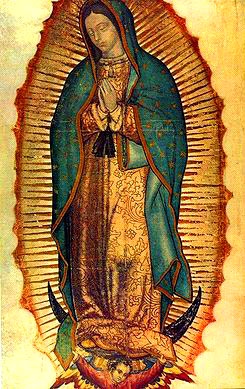
The music found on the tilma of Our Lady of Guadalupe
The image of Our Lady of Guadalupe is one of the most revered and miraculous icons in the Catholic world. It was imprinted on the tilma (cloak) of St. Juan Diego in 1531, when the Blessed Mother appeared to him four times on Tepeyac Hill, near Mexico City. The image has many astonishing features, such as its inexplicable preservation for almost 500 years, its reflection of the constellations in the sky at the time of the apparitions, and its detailed depiction of the Virgin’s eyes. However, one of the most surprising and fascinating recent discoveries about the image is that it appears to contain hidden music.
How was the music discovered?
Fernando Ojeda was interested in studying the image from a mathematical perspective, and it was he who discovered the music. He noticed that the flowers and stars on the tilma had a geometric arrangement that could be translated to musical notes. He used a system called Kepler’s triangle, which is based on the golden ratio and the Fibonacci sequence. The tilma was divided along its single vertical seam, and vertical lines were then applied to the image and a corresponding musical note assigned based on the position of the stars and flowers on the tilma, that when played, created an unearthly, harmonious melody that correlated exactly to the image.
What does the music sound like?
The music that Ojeda found on the tilma is a beautiful and harmonious melody that has been described as “angelic” and “heavenly” by many who have heard it. The music has a soothing and peaceful quality that reflects the maternal love and grace of Our Lady of Guadalupe. The music also has a mathematical precision and symmetry that reveals the divine order and intelligence behind the image. The music can be heard in various versions online, such as a one-hour long loop or this short video.
How was the image of Our Lady of Guadalupe made?
The image of Our Lady of Guadalupe was created in a miraculous manner. According to tradition, the local bishop, upon being informed of the apparitions of the Blessed Virgin, asked Juan Diego to provide proof that she really was the Mother of God. The next time he saw Our Lady, Mary told St. Juan Diego to climb a nearby hill, telling him that he would find flowers there that he should pluck and bring back to her. Juan Diego had never seen a single flower bloom in that desert of cactus and thistles, but he did as he was told, and when he reached the top of the hill, he found it covered with exquisite Castilian roses. He gathered many of them up, and the Queen of Heaven took the roses from Juan Diego and arranged them with her own hands, placing them in his tilma of cactus fiber. She then tied a knot in the tilma behind Juan’s neck to hold the roses undisturbed until he should show them to the local bishop. When Juan Diego opened his cloak before the bishop and other witnesses, the image of Our Lady of Guadalupe was revealed as the roses cascaded to the floor. Up until that moment, Juan Diego himself had been completely unaware of the miraculous image that had been created on his cloak.
What is the meaning and significance of the music?
The music found on the tilma of Our Lady of Guadalupe is another proof of the miraculous nature and origin of the image. The image itself is considered an acheiropoieta, or work not made by human hands, but is perhaps the creation of God Himself or his angels, who used St. Juan Diego as His instrument. It also shows that God speaks to us in many ways, not only through words, but also through signs, symbols, and sounds. The music is a gift from Our Lady of Guadalupe, who wants to communicate with us and draw us closer to her Son. The music is a reminder of her presence, her protection, and her intercession for us.
Conclusion
The music found on the tilma of Our Lady of Guadalupe is one many amazing discoveries about this miraculous image. It reveals a hidden dimension of beauty, harmony, and meaning that enriches our understanding and appreciation of this icon. It invites us to listen to Our Lady’s message of love, hope, and conversion. It also challenges us to discover the music that God has written in our own hearts and that can be discovered in our own lives.
See Our Lady of Guadalupe page
Traditional Values, Traditional Education:
Our Lady of Victory School
In 1973 a small group of parents and grandparents met to hear a talk encouraging the formation of traditional Roman Catholic schools. They had realized the negative influences in the public schools, the declining quality of Catholic schools, and the negative effects on their children and sought an alternative option.
That September Our Lady of Victory school opened its doors to 30 students in rented classrooms at the Church of the Nazarene in Panorama City, Southern California.
In order to fund the school, the parents held weekly yard sales year round. They relied on donations and support from the community and other Traditional Catholic groups. This project lasted for 12 years and supported the school during that time.
By 1977 the school had moved twice to find enough classrooms for the growing number of students.
It was then decided that Our Lady of Victory School would offer their attractive educational program by correspondence. Our founder, Mr. William Bowman, and his wife, Ina, traveled approximately 10,500 miles throughout the United States and Canada via a VW van and spoke to various groups who were interested in homeschooling.
The reception of this idea was exceptional, and soon the school had over 1,200 students in 48 states, five Canadian Provinces, and Australia.
At that time, homeschooling was still frowned upon and difficult to implement in certain states. Mr. Bowman received letters from parents describing their legal struggles while exercising their God-given parental rights.
Thankfully, the Home School Legal Defense Association came onto the scene in the early 1980s, and Our Lady of Victory School became a member, which gave parents the resources they needed in order to understand their legal rights surrounding homeschooling and to avoid government overreach.
Since moving to Post Falls, Idaho in 1991, the demand for homeschooling has increased tremendously. Over the years, our program has been recommended by numerous priests and religious throughout the world.
To ensure the continuing quality of our educational standards and assist graduates in applying to colleges, Our Lady of Victory School became accredited through NAPCIS in 2007.
With the blessings of Our Lady of Victory, always at the helm of our school, and the constant dedication of our fine staff, we have operated from our current facility since 2004 and from which we continue to serve families and Catholic schools across the world in educating children for Heaven! Our Lady of Victory, Pray for us!
Save The Date! You Don't Want To Miss The Pelayo Short Film Premiere This April!
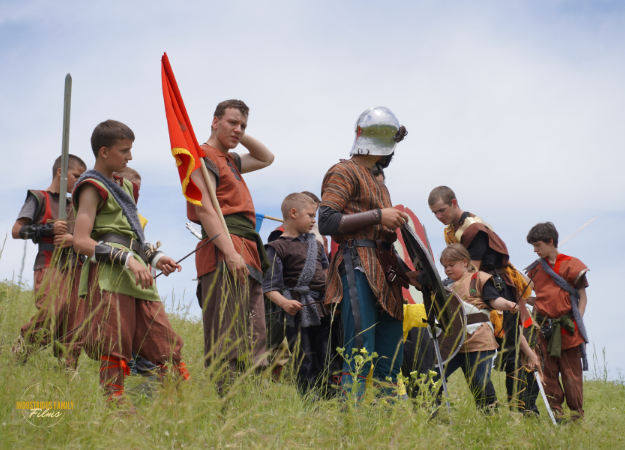
This April 15th at 5:30 PT enjoy Industrious Family Films’ free premiere of the adaptation of their story of Pelayo, a short film based on the Visigothic hero of Asturias who heroically stood against the Muslim invasion of Spain which began in 711. This event will feature:
- A line up of speakers including author James Fitzhenry with a few comments from his new book Pelayo King of Asturias, The War of the Vendeé director Jim Morlino, and Pelayo director, Mary Bowen
- LIVE interactions with film creators Mary, Faustina, Michael and Becket Bowen
- Never before seen behind-the-scene pictures
- And so much more...
Industrious Family Films is a Traditional Catholic family-owned moviemaking company that specializes in telling good stories that are always entertaining and never preachy. Your family will love watching the stories of Christian virtue come to life in their films.
These Catholic films will inspire you with their messages while eliminating all the fuss of sanitizing Hollywood productions. So gather your family together, pop some popcorn, and turn on a family friendly movie that is engaging and has nothing you’re going to need to fast-forward through.
The Retelling Of Heroic Deeds Inspire Heroism In Today's Youth
Industrious Family Films knows that entertainment should serve to uplift your thoughts, and this is the kind of films they strive to bring to you and your family. It’s what they live for.
Telling children the stories of heroes instills a spirit of heroism in them. It’s what makes future generations of heroes. This is the secret that made Spain the nation it is. The Spanish told the stories of the lives of St. James, Pelayo, and El Cid to their children, and these stories inspired other Spaniards who were renowned for their valor including Queen Isabella, Hernan Cortez, and Don Juan of Austria.
We need heroes today. We need heroes that will withstand the global power that seeks to overreach God much like how the Muslims did in the days of King Pelayo. Since film is the most captivating modern medium for storytelling, Industrious Family Films is telling the stories our children need to see and hear.
The Power Of Storytelling In Film Sways Our Culture For Better Or For Worse
Film is a powerful way of telling stories and has a deep impact because it involves more than one of the senses. You hear the lines the characters speak. You see how character’s actions affect the characters around them.
The music and good acting engages the viewer’s emotions. Stories told this way must be good to uphold our culture. Currently, the film industry is growing more and more corrupt and is dragging countless souls to Hell. They used to hide their filth in glossed over children’s movies but in recent years they are completely shameless about their standards. Industrious Family Films believes Disney, Pixar, 20th Century Fox, and Universal Pictures need to change their tune or be completely boycotted.
Right now there is a growing counter-revolution that creates and promotes wholesome Christian entertainment. Industrious Family Films is one of the few Catholic moviemaking companies that is holding its banner alongside the other Christian moviemaking companies many of you have heard of already: Angel Studios, Christian Cinema, and Pureflix. This movement is striving to bring Christian family movies of rivaling quality with the film giants.
Positive Entertainment From Past Productions Provided By Industrious Family Films
Right now Industrious Family Films is working to produce films in every genre. Their first film, Outlaws of Ravenhurst, is a Stuart period drama that takes place in the Scottish Highlands telling the story of a young boy who must defend his Faith in post Protestant Revolt Scotland.
Max & Carlota celebrates a forgotten page of Mexican history recounting the story of Emperor Maximillian and Empress Carlota who sought to set up a Catholic monarchy in atheist-run Mexico. Industrious Family Films’ third major motion picture, Grisly Grisell, celebrates the middle ages in a Cinderella-tale about a young girl with a marred face who learns that her inner beautiful virtues can transform her outward look to beauty.
Currently in pre-production is Fabiola, a Roman Era film that will feature forums, colosseums, and catacombs. St. Sebastian and St. Agnes will come to life and tell their stories in a way never seen before though the eyes of a pagan heiress in this mini-series.
Industrious Family Films also has a library of light-hearted saint, comedy and historic short films that will keep you and your children entertained for hours.
Find your new family favorite films and watch for free on https://www.industriousfamily.com. Reclaiming the art of filmmaking one wholesome movie at a time.
For more information about the Pelayo premiere click here: https://www.industriousfamily.com/pelayo.html#1

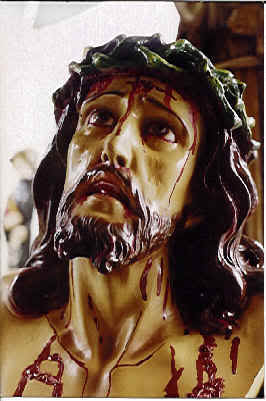
December 16, 2018
Abandonment to God's will produces great joy, even amidst great suffering. "It is not rare," says Msgr. Gay, "for this to be sensible joy. At other times it remains purely spiritual."
The crosses of saints are heavier than those of other men; nevertheless, they are more joyously borne, for the very good reason that the saints willingly accept them. We make our own crosses, when our wills clash with God's will. But when they are in conformity with His, the result is two parallel wills - two rails on which we roll swiftly and surely toward Heaven!
Listen to the holy Cure of Ars, an illustrious Franciscan Tertiary:
"It is the Cross that gave peace to the world; it is the Cross that we should bear in our hearts. All our troubles come from not loving it. Fear of crosses increases our crosses. A cross simply and lovingly borne, no longer brings suffering. Nothing makes us more like our Lord than does carrying his Cross. All suffering is sweet in union with Him. I cannot understand a Christian who does not love his cross, or who flees from it! Do we not at the same time flee Him who willed to be nailed to it, and to die on it for us? Contradictions bring us to the foot of the Cross, and the Cross brings us to Heaven's gate. To get there, we must first be vilified, despised, crushed. Suffering? What of it? It is but for a moment. If we could spend a week in Heaven, we should understand the value of this moment of suffering - we should find no cross heavy enough, no trial bitter enough. The cross is a gift which God offers to his friends. We must pray to love our crosses, for in this way they become sweet. I experienced this for myself during four or five years. I had been slandered, contradicted, shoved about. Oh, it was almost more than I could bear! I began to beg for the love of crosses. Then I became happy. I said to myself, 'Really, crosses are the only source of true happiness!' We must never look to see where our crosses come from - they come from God. It is always God who furnishes this means of proving our love for him. Oh, when the day of judgment comes, how happy we shall be about our unhappiness; how proud of our humiliations; how rich in our sacrifices."

26 November 2018
A prayer for the conversion of a loved one
O God, you who expressly command us to love our neighbor and deign to promise such magnificent rewards to those who, for love of you, charitably do good to their brethren; it is in the name of Mary, Immaculate Virgin and refuge of sinners; it is in the name of Jesus, this Divine Lamb immolated on the Cross for the sins of the world; it is in the name of your infinite mercy, that I come to beseech you to forgive a sinning soul, to bring back a lost sheep to the fold. Ah, if this unfortunate soul but understood its sad state! If is but realized what it loses by separating itself from you, by setting its heart’s desire on this land of exile, by living as if it had no heavenly home! If it only knew—this poor soul—the fate reserved for it in eternity after a lifetime of suffering, without true consolation and without hope!...O God, deign by your divine light and by the power of your grace to open its eyes; impress its mind with the dangers of its position; and, finally, take away from it the love for those things that perish. Vouchsafe, O Lord, to inspire this new prodigal son with a burning and efficacious desire to return to you, his tender Father. Receive him in your arms; restore his right to your love and grace; and to you, O Lord, be the glory. Amen.

18 November 2018
Why are some souls so worried?
Dom Eugene Vandeur answers this question, in his book entitled Abandon a Dieu.
“I am worried! And what about?”
“I am worried about myself; it is for myself I am frightened; it is for myself that I dread so many things.
“Worry and egotism! Are they not too often the same thing?
“Always this vision of me in front of me; that is what wearies me; that is what wears me out.
“I must forget self. I must forget what I was, what I am, what I might be—and replace this memory by that of God; who is alone worthy to capture my thoughts or inebriate my heart.
“I worry about everything, because by Self is really multiple. It has multiplied itself unto so many things, from which I never manage to detach myself.
“And each one of them causes me a particular worry, more or less acute according to the degree of the attachment binding me to it. I fear to lose the things I love, that I possess, that I have so painfully accumulated: honors, riches, position, food and raiment…
“My Self fears spoliation—and will have none of it. It spends its life trying to protect what it so jealously possesses.
“And peace is lost, that serenity of soul, which has, and can have, no other basis than the Immovable, i.e., God alone.
“But nothing is so disquieting as the future.
“The past, however painful, I have lived, suffered, and borne. It is over and done with. I have perhaps triumphed over it.
“The present, I live in, however hard. I know where I am; I know what my difficulties are; I am working to overcome them.
“But the future! The future! What will that be? What is going to happen to me tomorrow, the day after tomorrow, a year from now, ten years from now?
“Where shall I be? What shall I be doing? And what is to become of me and mine, and all those whom I love? (Oh, what a worry that is!) And my dwindling resources? And my growing children, noisy, venturesome, thrilled at life?
To be continued:
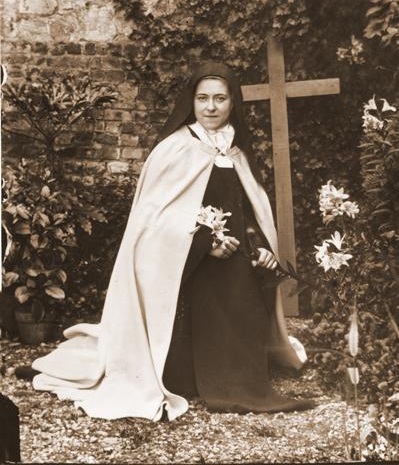
12 November 2018
The child has no self-knowledge, does not indulge in introspection; is incapable of self-study and of self-observation. He takes himself as he is, and goes straight ahead.
The spiritual child, likewise, is not curious about turning his thoughts inward, nor to see what is passing within. He takes what God gives him, and is content to be at each moment what God wants him to be. He does not judge of the goodness of his meditations, communions, or other practices, according to his passing moods; but leaves the judgment up to God.
Provided that the innermost dispositions of his soul do not change, he rises above all the vicissitudes of the spiritual life. He knows that it has its winters, its tempests, and its clouds; that is, its dryness, its disgusts, its inner doldrums, and its temptations. He stoutheartedly goes through every trial and calmly awaits the return of fair weather.
He is not anxious about his spiritual progress. He does not look back to see how much ground he has covered; but follows the path without thinking that he is walking, and advances so much the more because he does not look to see if he is advancing. Hence, he is neither disquieted nor discouraged. Should he chance to fall, he humbles himself, but at once picks himself up; and runs on with renewed ardor.
The child is weak, and knows he is weak. This is what renders him so submissive, so distrustful of self, and so trustful toward those whom he knows have his welfare at heart.
In the same way, the spiritual child knows that he is weakness itself — that of himself he is unable to stand, or to take so much as a single step without stumbling. This, distrustful of his own strength, he places all his trust in God. Far from him, then, is the thought of crediting himself with the good that he accomplishes or the victories he gains — he ascribes all the glory to God. He does not prefer himself to others, but is intimately convinced that, should God abandon him, he would fall into the greatest of sins; and that if others had the same graces as himself, they would have known better how to profit by them.
For the same reason that he knows his frailty, he is not astonished at his falls. His self-love feels no affront; instead he calls God to his aid.
He never undertakes anything on his own; but let God once speak, and he is willing to undertake anything and to expose himself to every danger—so certain is he of success, in spite of all the opposition of men and demons.
Innocence, peace, and pure joy are the appanage of childhood. Children are happy without knowing it; they are carefree. The parents think of everything for them. Thus they are in a continual state of enjoyment.
This is a very feeble picture of spiritual childhood. The happiness of spiritual childhood, like that of natural childhood, is unperceived and unplotted, but nonetheless real and enjoyed. God Himself pours it into the soul. He thinks of everything; he provides for everything. This happiness endures in the midst of the greatest storms of the spiritual life. It is not that spiritual childhood makes us insensible; but it raises us, through our abandonment to God’s will, to an imperturbable peace, far above all feeling.
This may be judged of only by experience.” St. Therese of the Child Jesus, with her “little way,” and St. Francis of Assisi by his simple and obedient life, teach us nothing other than this. Let us learn from them and we shall achieve the same kind of sanctity!
Photo Credit: Celine Martin
http://www.archives-carmel-lisieux.fr/english/carmel/index.php/47-photos-english/673-photo-38-saint-therese-of-lisieux#fwgallerytop
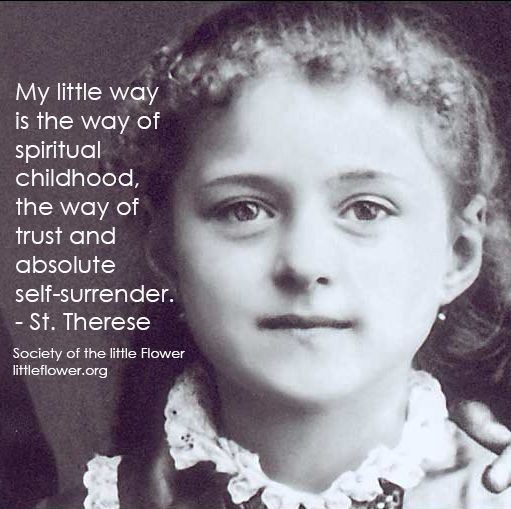
4 Nov 2018
What is spiritual childhood? Part I, by Richer-Marie Beaubien, O.F.M.
"Spiritual childhood is a state of soul for which we should all aim; and which consists in acquiring those spiritual dispositions which correspond to a child’s natural dispositions.
"This is the thought our Lord means to convey when he says to us, “Unless you become as little children, you will not enter into the Kingdom of Heaven”
"If we are to have some slight grasp of the meaning of spiritual childhood (unless we are already in the state of proficient), we need graces of illumination obtainable by prayer and detachment…
"Nevertheless, we are still able to get some idea, by comparing it with natural childhood. Fr. Grou in his Manuel des ames interieures (Manual for Contemplatives) draws an apt parallel, as you can see for yourselves:
"The child does not reason; does not reflect; possesses neither prudence nor foresight; and is without malice. It is the same way with spiritual childhood. The first thing that God does, when he places us in this state, is to suspend the operations of the intelligence. He arrests the constant flow of reasonings and reflections, and replaces them by simple and direct operations; which issue, so to speak, from the soul. And he does this in such a fashion that the soul believes that it no longer thinks (although it continues to think, but in a manner more elevated, and more approximating the thought of God; since God has but one infinitely simple thought). The soul no longer reasons or reflects; and is not concerned with either past or future, but solely with the present. It forms no projects; but lets itself be guided from moment to moment – interiorly, by the Spirit of God; exteriorly, by his providence. Its actions and speech contain nothing of malice; because it does nothing, and says nothing, designedly or with premeditation.
"Stripped of its own prudence, the soul is clothed with that of God; who always causes it to speak and act opportunely, so long as it is faithful in not consulting its own reason.
"The child does not dissimulate. (As soon as he is capable of dissimulation, he is no longer a child.)
"Likewise, nothing approaches the candor of the spiritual child. He does not assume an “appropriate expression;” his recollection is not strained; all—words, actions, and demeanor—is natural in him.
“What he says, he means.”
“What he offers, he wished to give.”
“What he promises, he wishes to fulfill.”
“He does not attempt to appear other than what he is, nor to conceal his imperfections or sins. He does not have a special confessor for his serious faults.”
“He tells the good and bad about himself with the same simplicity; he keeps nothing back from those to whom he ought to speak.
The child manifests his love with simplicity. Everything in him expresses the sentiments of his heart. He is so much the more touching and persuasive, because his manner is unstudied.
It is the same way with the spiritual child in his demonstrations of love for God, and in his charity toward his neighbor.
He goes to God simply and unaffectedly. He lets his heart speak; without the use of fixed forms, or chosen words. He knows no other “prayer method” than that of being near God, looking at him, listening to him and possessing him; expressing all the sentiments inspired by grace –sometimes with words, and more often, without.
“He loves his neighbor sincerely and wholeheartedly; bearing him neither envy nor jealousy. He neither ridicules, criticizes, nor despises him; and never deceives him. He never flatters him (having lost the habit of those vain compliments which do not come from the heart). He takes from politeness only what the Gospel authorizes, rising above it by charity and cordiality.
“He loves no less when he reproves, than when he approves; when he condemns, than when he prizes. He does good to others without affectation; under the eyes of God, without looking for gratitude.
“The child is docile and obedient. He feels that he was not made to do his own will.
“Likewise, the first thing that the spiritual child renounces is his own will; which he submits entirely to God’s will; and to all that represents God to him. He does not wish to govern himself in anything; but abandons himself for his interior conduct, unreservedly to the Spirit of God, and to the director in whom his confidence has been placed. As for his exterior conduct, he willingly yields to all those in authority over him. In indifferent things, he prefers to accommodate himself to the will of others, rather than to bring others to follow his own will."
To be continued...

By Jessie Eastland
27 October 2018
Black storm-clouds scud threateningly by;
Thick darkness has scattered light;
Terrified, ignorant, foolish folk
Proclaim a perpetual night!
But somewhere the sun still is bright,
And soon he will reappear;
And golden gleams from his glorious beams
Will banish the midnight fear.
Though Sun of the Soul seem to hide –
Thick darkness enshroud the soul –
Shaking her faith, grieving her heart,
Till she almost forgets her high goal;
Away with such puerile despair!
Deep anguish and needless plight!
But swift-footed, run to greet our Sun—
With burning love and delight!
“We ought to conform our will to that of God in those natural things that are beyond our control,” says Fr. St. Jure. “Heat, cold, wind, hair, storms, thunder, lightning, pestilence, famine, in a word, all inclement weather, and the disorder of the elements. We ought to be pleased with whatever kind of weather God sends; and not endure it with impatience and anger, as people have the habit of doing when it is not to their liking. We must not say, ‘What terrible weather!’ or employ other terms which show how vexed and displeased we are. We ought to want the kind of weather we have, for God made it; and say with the three children in the fiery furnace of Babylon ‘Cold and heat, ice and snow, lightnings and clouds, bless the Lord; praise and glorify him forever!’ These creatures do so unceasingly, through their obedience to God and their doing of His most holy will. In the same way, we ought to bless and glorify Him with them. Now to check these unjust feelings and unbridled words, we ought to think that if this weather inconveniences us, it is helpful to another; that if it hinders our plans, it furthers those of our neighbor; if it is not good for a part, it is useful for the whole. And should it be otherwise, is it not enough for us that it should always be good for God’s glory; since it is according to His will and pleasure?”
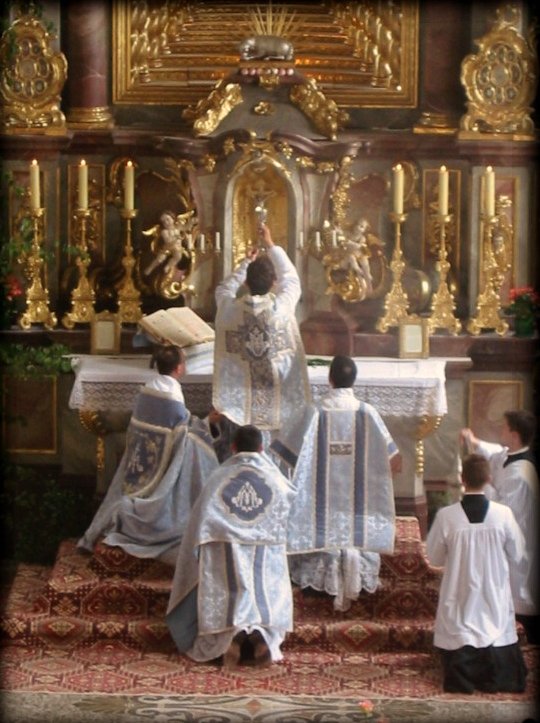
19 October 2018
A Prayer to Jesus, the Eternal High Priest
O Jesus, eternal High Priest, divine Sacrificer, you who in an unspeakable burst of love for men, your brothers, caused the Christian priesthood to spring forth from your Sacred Heart, vouchsafe to pour forth upon your priests continual living streams of infinite love.
Live in them, transform them into yourself. Make them by your grace, fit instruments of your mercy. Act in them and through them, and grant that they may become wholly one with you by their faithful imitation of your virtues; and, in your name and by the strength of your spirit, may they do the works which you accomplished for the salvation of the world.
Divine Redeemer of souls, behold how great is the multitude of those who still sleep in the darkness of error; reckon up the number of those unfaithful sheep who stray to the edge of the precipice; consider the throngs of the poor, the hungry, the ignorant and feeble, who groan in their abandoned condition.
Return to us in the person of your priests; truly live again in them; act through them and pass once more through the world, teaching, comforting, sacrificing, ad renewing the sacred bonds of love between the Heart of Jesus and the heart of man. Amen.

12 October 2018
Hosts for priests, cont:
“The more you are hosts, the more they will be priests!” And naturally, a soul will say to herself, “The less I am a host, the less they will be priests!” This pertinent reflection is no less an incentive to sacrifice and heroism. If priests are “less priests,” the glory they will give to God will be less; souls saved will be fewer; the number of the damned will be greater. Who would dare assume such a responsibility?
A soul who has understood the role of the host, can no longer refuse anything to God. For priests she prays; for priests she sacrifices herself; for priests, she would even despoil herself of all her merits in order to enrich them. Like St. Catherine of Sienna, like St. Teresa of Avila, or St. Therese of the Child Jesus, this soul makes the sanctification of the souls of priests the constant object of all her efforts. She lets no opportunity slip by.
Misunderstood, she does not complain. She offers her sufferings to God. May she merit for priests the grace to understand souls! So many souls who are misunderstood, thus fail to give their full measure! She forbids herself all complaint, but keeps smiling. Her sufferings – if God wills to accept them – will preserve the precious health of priests. How many souls ever offer up their lives for priests! I understand them. They could not sacrifice themselves for a more noble cause. She is ready for every task. Is it given her to choose? She reserves for herself the most painful and humble task. To hear her tell it, she is never tired! What is the secret of her energy? She hopes to merit needed strength for priests. Is it not to such souls that certain priests owe their long and fruitful careers?”
Monsignor Ambroise Leblanc, OFM
St. Therese of the Child Jesus made this reply one day to her nurse who gently chided her – with her feeble strength – for walking in the garden. “I am walking,” she answered with a smile, “for a missionary who can go no further.”
Let us listen to her once more in these touching lines addressed to her sister: “In the brief moments still remaining to us, let us not waste time, but save souls. I know that Jesus asks us to quench his thirst by giving him souls, especially souls of priests...Yes, let us pray for priests. Let our lives be devoted to them.” On the eve of her profession, she declared, “I came to Carmel to save souls and to pray for priests.”
For her, it is a conviction. Whoever does not pray, who does not immolate himself for priests, cannot flatter himself that he loves God.
“To live by love, this is, O Divine Master,
To beg of thee to pour thy sacred fire
Into the chosen, holy soul of this, thy priest.
Make him more pure than Heaven's seraphim!
Protect thy Church immortal – I beg of thee –
each moment of the day.
Her child, I immolate myself for her.
I live by love!”
Elsewhere, Little Therese had chanted her prayer:
“I would have the soul of a priest
Resemble an angel in Heaven.
I would have him born again
Before he ascends thine altar!"
She has no illusions. Such miracles are the fruit of ardent prayer and of long immolation. Thus she adds:
“That this miracle may take place,
Many souls burning with love,
Day and night, near the tabernacle,
Must immolate themselves.”

5 October 2018
What are “hosts for priests”?
“Hosts for priests” those generous souls who pray, sacrifice, and immolate themselves for the sanctification of priests and the fruitfulness of their ministry.
After the priesthood itself, could there be a more beautiful vocation?
A source of greater merit?
It has been well said: “Working on priests is working on multipliers,” or again, as St. Therese of the Child Jesus put it, “It is doing business wholesale!”
For the priest is not saved alone, and alas, is not lost alone. The priest will enter Heaven with an innumerable number of elect; or he will fall into Hell followed by a multitude of lost souls, who will forever be his shame and confusion.
“Contributing to the vocation and sanctification of just one priest means snatching souls from Hell and working toward the salvation of an entire population.” “Making a holy priest,” said Msgr. De Segur, “means saving thousands of souls.”
“Making good priests,” declared St. Vincent de Paul, “means working at a masterpiece, beyond which one can think of nothing greater or more important! Oh, what a great thing it is to be a good priest! What conversions may he not obtain! What the pastor may be, so are the people.”
We hear many criticisms today about priests...if instead of criticizing, we prayed for them to become saints, don't you think it would be better?
You no doubt have a high idea of the priesthood, and when you meet a priest, you expect to meet a saint. You are quite right. Every priest ought to be a saint. Unfortunately, this is not the case. The priest has his faults, a fallen nature like your own, and temptations perhaps greater than yours....the Devil works harder to ruin one priest than he does to ruin a hundred laymen; for well he knows that the priest who saves his soul will same many other souls; and that the priest who loses his soul will drag down many other souls with him in his fall.
All these considerations, of course, do not justify the weaknesses of certain unfortunate priests...but be sure of one thing. Criticizing them is not the way to make saints of them. Instead, you will draw down upon yourselves the curse of God; you will scandalize your hearers; and perhaps fall yourselves into greater faults...
Let us pray for them, then, and pray to God for holy priests. Not just good priests, but holy priests. Do not be afraid of asking too much of God – this does him honor. He is not like men, but is rich and generous.
It is to the advantage of the faithful to pray for the sanctification of the clergy, for they are first to benefit from them.
A holy priest makes the people fervent.
A fervent priest makes the people good.
A good priest makes the people mediocre.
A mediocre priest makes the people bad.
A bad priest makes the people impious.
Hence, the heavy responsibility of the priesthood. The priest says to himself, “I am the yeast which ought to make the dough rise! I am the salt, and must answer for whatever around me has lost its strength. I am the beam; and if the building crashes, God is going to ask me why! I am the lighthouse God has set up to shine in the darkness; and if so many unfortunate souls are lost, perhaps it is because of my ineptness – because I am night in the night, instead of Christ's burning lamp...
Generous readers who read these lines, can you still hesitate a single instant to become “hosts of priests?” Can you refuse to priests this assistance they expect of you?...this sublime vocation many be embraced not only by religious by also by all laymen.
That was why on August 3, 1908, St. Pius X was able to write: “We rejoice at the thought that a large number of faithful of every condition, are preoccupied with the welfare of the clergy and of the Church, uniting themselves to Us; and it is no less pleasing to Us to learn that there are many generous souls, not only in the cloister, but likewise in the world; who, in an uninterrupted oblation, present themselves as victims to God to their end.”

27 September 2018
Before we came into existence, God loved us. His love for us dates from all eternity.
He it is who created us; and ever since we entered the world, He has preserved our lives.
Every step that we take on the road of life, we owe to Him. Let Him but suddenly cease His sustaining action, and we are blotted out from the number of the living. His goodness follows us everywhere; His love envelops us and protects us. For us, He became a little Child. For us, He preached the Gospel and founded His Church. For us, He shed the last drop of His blood. For us, He has gone so far as to let Himself be eaten – by the institution of His Sacrament of love, the Holy Eucharist! For us, He has prepared a place in His Heaven!
What gratitude and love should be ours toward Him who has shown us only goodness and mercy! How we should show forth our tender and loving gratitude for the immense benefits we have received from Him, never wearying of blessing and admiring Him, and of tasting the ineffable sweetness of His love, making it the constant object of our contemplation.
Richer-Marie Beaubien, O.F.M.

16 September 2018
I’ve recently had a difficult decision to make concerning whether or not I would keep this website open with the new requirements for compliance brought about by the European Union and other new restrictions. While major corporations are hiring staff to bring their sites into compliance, this website cannot afford such an expense. Nevertheless, I have decided to make the commitment necessary to meet the new requirements, if possible, and to continue to grow this Catholic website.
It’s been a long road in a relatively short amount of time.
I think back a little over a decade and remember seeking advice from someone who used to work for a large Catholic publisher. I had an idea for a children’s book, and didn’t know how to proceed. I was advised that it is indeed difficult to get published, but to write the book anyway, for if it was God’s will, the book would somehow be published. It was good advice, but getting a book published and having it read by a large audience are two very different things. I will never forget the support and encouragement I received at this time from two people: Fr. Nicholas Gruner, known as the Fatima Priest, and John Vennari, publisher of Catholic Family News. John told me he had picked up my book after his daughter had been attracted to the illustrations. John then wrote the very first review for my first book, “Learning to Love God,” publishing it in his paper. Fr. Gruner purchased the book for sale in his bookstore.
My next book followed at the request of a good priest, and because of my desire to correct the record about the Spanish knight and hero Rodrigo Diaz, El Cid. That book became “El Cid, God’s Own Champion,” which received quite a reception. It is now used in many Catholic schools, where the life of the hero stands as an example for our children to emulate. I was four chapters into my next book about St. Fernando III, king of Castile, when I received a phone call from a Catholic publisher asking if I would consider writing a book about the saint. Once again, it was amazing to see the hand of God at work. I answered that I had already begun a book about St. Fernando, read the publisher a paragraph I had just written, and the book was sold, becoming “St. Fernando III, A Kingdom for Christ.” No sooner was that book finished than I received a phone call from an abbot I had never met asking for what became my next book, “Defenders of Christendom.”
Part of the reason I have decided to keep the website open is because of the support of these good men, because they believed in me and because they believed that what I was doing was important. Thankfully, I have also heard from people all over the world during these years about how much my books have impacted them and inspired them and their children to be good, strong Catholics. Both John and Fr. Gruner have already gone on to their eternal reward, and as I remain humbled by their assistance, I also realize that I must continue so that their support for me is not made vain. They fought the good fight and have run their race. In my own small way, I intend to do the same.

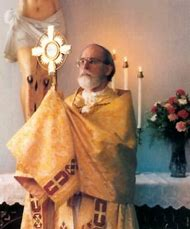
Joseph John Vennari, R.I.P. Fr. Nicholas Gruner, R.I.P.
15 September 2018
Thank you for your prayers
Thank you for your prayers on behalf of the young priest who had part of his leg amputated. The surgery went well, but Father has a long recovery ahead of him. Please continue to remember him in your prayers.
Roman Catholic Saints Blog
The Roman Catholic Saints Blog is my journal for the website. It...
--lets you know when any new web pages appear on roman-catholic-saints.com
--keeps you up to date with any new saints or inspirational stories that are added to the website
Jul 01, 2023
The Feast of the Holy Name of Jesus is celebrated by Catholics.
The Holy Name of Jesus is frequently used in prayer because Catholics have always believed there is power in the name and have invoked it for centuries.
Continue reading "The Feast of the Holy Name of Jesus is celebrated by Catholics. "
Feb 06, 2021
Consoling Sisters of the Sacred Heart
Please consider donating to the Consoling Sisters of the Sacred Heart. Below is an excerpt of the letter from the Mother Superior explaining their apostolate.
Feb 06, 2021
Donations
It's incredibly important for us to support these apostolates, and the charitable souls who dedicate their lives to Christ. We need the truth, we need the faith.
Nov 03, 2018
Our Lady of Saideneida
Our Lady of Saideneida, The story of the shrine of Our Lady of Saideneida
Jul 22, 2018
Our Lady of the Fields Patroness of Glenmary Home Missioners
Our Lady of the Fields is patron to Glenmary Home Missioners, founded by Father William Howard Bishop in 1939 to establish Catholic churches in U.S. counties
Continue reading "Our Lady of the Fields Patroness of Glenmary Home Missioners"
Jun 18, 2018
The Blessed Virgin Mary as the Woman of the Apocalypse
12:1 A great sign appeared in the sky, a woman clothed with the sun, with the moon under her feet, and on her head a crown of twelve stars. 2 She was
Continue reading "The Blessed Virgin Mary as the Woman of the Apocalypse "
Jun 17, 2018
The Shrine of Our Lady of Charity In Bantay, ILocos Sur
Fanny, Precy and Renee visited the Shrine of Our Lady of Charity (Nuetra Senora de Caridad)in Bantay, Ilocos Sur last February 21, 2016. Fanny asked me
Continue reading "The Shrine of Our Lady of Charity In Bantay, ILocos Sur"
Jun 17, 2018
Pilgrimage to La Vang - A Dying Man's Last Journey
About 10 years ago, while walking through the Basilica of Saint Mary in Minneapolis, Minnesota, I came across an unusual statue of The Blessed Mother with
Continue reading "Pilgrimage to La Vang - A Dying Man's Last Journey"
Jun 17, 2018
Our Lady of Montevergine
In 1945-1946, I served as a very young soldier in the USA Army. I was stationed for most of that time in the MTOUSA headquarters in Caserta, Italy, north
May 25, 2018
Our Lady led me to Altoetting !
The Holy Spirit works in very mysterious ways. I graduated from university with a Masters degree in engineering. Got my first job. Bought my first house,
May 19, 2018
'Our Lady, Protectress of Sailors.'
Did Nossa Senhora da Nazaré save me and my crew, Anna and Ger, from drowning in the Bay of Biscay? One cannot know these things, but it feels to me that
May 19, 2018
Our Lady of Pompeii - Thanks to Our Lady's Intercession
My daughter who was having a baby had a condition that she got after having a emergency caesarean. She had already lost one baby when a friend found out
Continue reading "Our Lady of Pompeii - Thanks to Our Lady's Intercession"
May 19, 2018
Do not miss this Church when you go to Brescia!
There are so many churches in Brescia but we enjoyed this one so much. There was an old man and he was happy to explain everything. We spend almost an
Continue reading "Do not miss this Church when you go to Brescia!"
Jul 16, 2017
Saint Joseph
Saint Joseph, Spouse of the Mother of God, Chaste guardian of the Virgin, Foster-father of the Son of God
Dec 27, 2016
Prayer to St. Michael the Archangel
Prayer To Saint Michael The Archangel Composed by Pope Leo XIII
May 27, 2016
Saint Michael the Archangel
Saint Michael, Archangel. This great prince is the general patron and protector of the holy Catholic Church.
May 14, 2016
Saint Anne
St. Anne, the holy mother of Mary, the Mother of God, and spouse of St. Joachim.
May 08, 2016
St. Joachim, father of the Blessed Virgin Mary
Saint Joachim, father of the Blessed Virgin Mary and spouse of holy St. Anne
Continue reading "St. Joachim, father of the Blessed Virgin Mary"
Dec 15, 2014
Defenders of Christendom
Defenders of Christendom is filled with amazing stories of little-known Catholic heroes presenting spectacles of bravery and valor never exceeded in all the annals of history.
Sep 08, 2013
Saint Genesius
Authentic documents, quoted by Ruinart, induce us to believe that the martyrdom of Saint Genesius took place at Rome, at the beginning of Diocletian’s reign, about the year 285.
Aug 25, 2013
Saint Blase
Saint Blase was a native of the city of Sebaste, in Armenia, and in his younger days applied himself to the study of philosophy,
Jun 30, 2013
Saint Theodorus
Saint Theodorus, who belonged to the military profession, and was a most exemplary Christian.
Now Available!!
Pelayo's resistance initiated the nearly 800-year-long Reconquista to take back his country from the ruthless invader who had conquered his homeland and sought to erase his culture and his faith. His actions would lay the foundations of a Kingdom for Christ that would eventually reach around the world and spread the Catholic faith to millions of souls. Read more...
Please help us continue to bring high quality books to our readers at the lowest possible price! Click the link below! Thank you!
Now Available!
Catholic Vitality Publications presents . . .Brand new by
James Fitzhenry
Now in paperback!
Battles - Honor - Miracles! This
book is filled with amazing stories of little-known Catholic heroes presenting
spectacles of bravery and valor never exceeded in all the annals of history. read more. . .
Now Available for $24.95
Also available:
Catholic Vitality Publications
Roman Catholic books currently published by Catholic Vitality Publications:
El Cid, God's Own Champion
-the amazing true story of the life of Rodrigo Diaz, El Cid!
Available for only $22.95
St. Fernando III
A Kingdom for Christ
- King St. Fernando III, born 100
years to the month after the death of
the Cid. His life was filled with miracles
and many conquests!
Available now for $26.95
Discounts available for bulk
orders and for bookstore
retail sales! Just contact us

